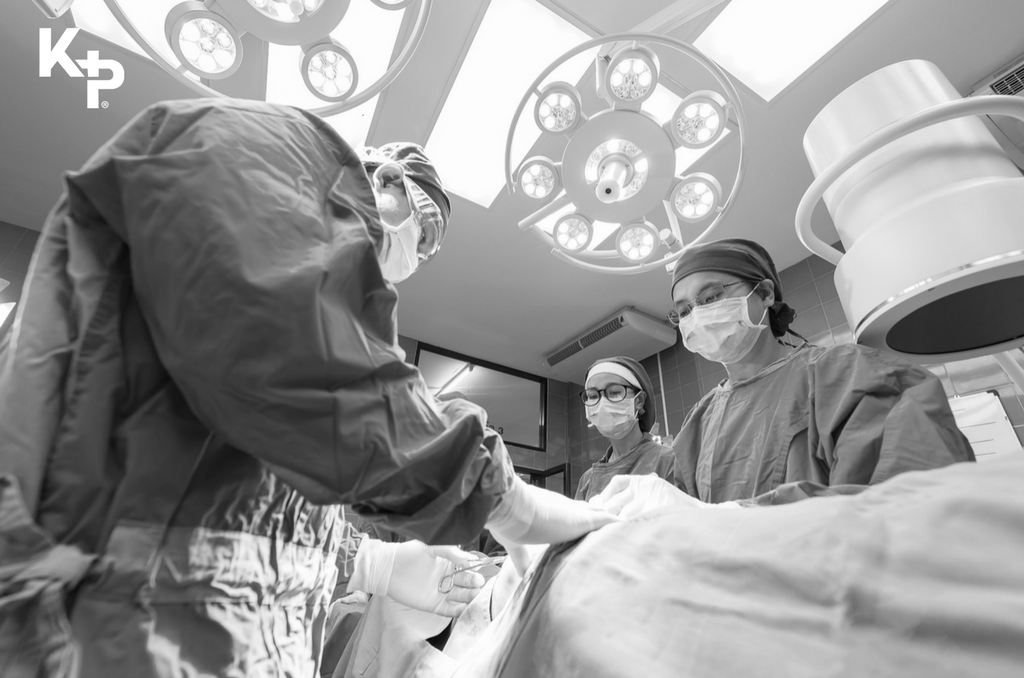5 actions that TV doctors don’t do in real life
Wednesday, January 25th, 2017 | Blog
Medical TV shows are often fairly accurate in their portrayal of healthcare, but due to the need to create drama they can often inflate certain aspects of a doctor’s day to day conduct. This often creates scenarios that portray an unrealistic representation of what it is that doctors actually do. So for all your harrowing scene of a patient facing unfathomable illness, there’s also a scene of House breaking into a patient's home. Here are 5 actions that TV doctors don’t do in real life.
Doctor Cox, Scrubs - Being rude to patients
Watching Doctor Cox converse with patients is often one of the funniest aspects of Scrubs, his no nonsense approach to dealing with issues is one of his focal points as a character; but due to the way modern medicine is, you can’t act like that. Lawsuits against doctors are common practice now, so giving away the slightest hint of malpractice would likely land a doctor in court and could potentially end with them being struck off.
Pretty much all medical shows - Doctors do everything
One thing that most TV shows seem to get wrong is the workload of healthcare professionals. Most TV shows would have viewers believe that doctors (especially A&E doctors) do everything. They don’t just diagnose and plan the best course of action for a patient, but they also administer the drugs and spend time with patients. In reality, doctor’s spend much more of their time filling out paperwork and attending meetings. It is in fact nurses and healthcare assistants that perform most of the care on patients.
Pretty much all medical shows - Hospital romances
Every popular medical drama would have you believe that hospital romances are an everyday part of life. Doctors fall in love with nurses, nurses fall in love with doctors and so on and so forth. There are obviously going to be some couples that met in a real hospital, but for the most part healthcare staff simply do not have the time. It’s common knowledge that healthcare staff are constantly rushed off their feet.
House - Breaking into a patient’s house
House is not really a great example of what a doctor should be. He is regularly rude to patients and is open about his drug addiction, two things that on their own would be enough to get a doctor struck off. He also has a bit of a penchant for breaking into patient’s houses, while the end cause is usually noble, this is still breaking the law. Doctor’s have an array of tests in modern medicine and often consult a myriad of specialists so breaking into a patient's home wouldn’t ever be warranted.
Every medical drama - CPR and Crash Carts
Every medical drama is guilty of wrongly portraying both CPR and Crash Carts, two potentially life saving procedures. Cardiopulmonary Resuscitation (CPR) is far less TV friendly in real life, it turns out that having someone try to restart your heart by pounding it through your chest is actually quite painful and often leads to broken ribs among other internal injuries. Worst of all, the procedure rarely works, even though TV shows would have you believe that every other person is saved by it.
TV shows often use a flatlining patient to help end an episode, or create an emotionally charged scene. Doctors and nurses hear the patient's heart monitor start to continuously beep, so everyone then runs in with a crash cart and so begins the resuscitation - one problem, this is wrong. Crash carts are not used on patients whose hearts have stopped beating, they are instead used to help correct an irregular heartbeat. Once a person’s heart has stopped beating, the chances of bringing them back with CPR are pretty low.
There are so many examples of TV shows getting it wrong, and those that work in the healthcare industry often find themselves getting annoyed at how wrong these shows tend to get it. Are there any times that you’ve found yourself annoyed at TV shows due to their flagrant disregard for medical accuracy?
It’s worth mentioning Call The Midwife, a programme is set in the 50’s 60’s that is becoming increasingly popular with nurses, midwives and care assistants. The historic nature of healthcare brings back the nostalgia of local communities pulling together in times of need. For many nurses this was either reflective of the time that their nursing careers began and for others hope that the level of multi-disciplinary care that patients received could be returned. The programme outlines maternity care at the time of the birth of the nation health service and the impact this had on all families from all walks of life. The starched uniforms, the respect, the nuns and the families all come together in one of the few factually correct medical dramas.














